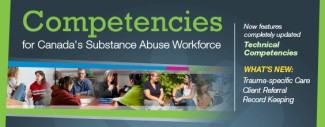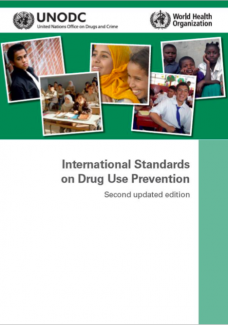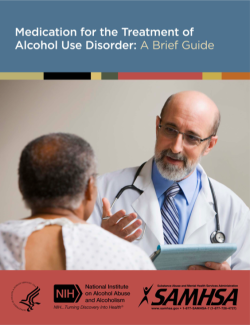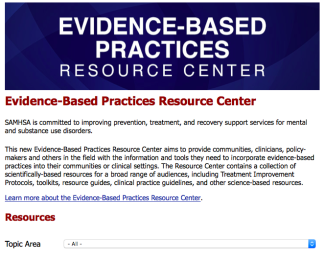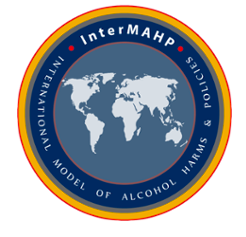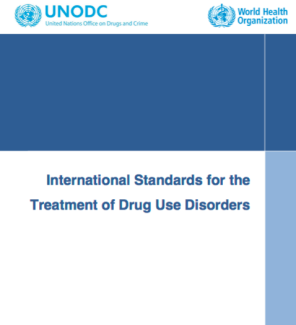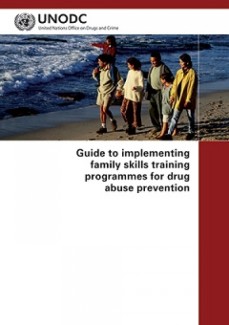Search
Overview of European University-Based Study Programmes in the Addictions Field
In 2015, the team from the Department of Addictology (First Faculty of Medicine of Charles University and General University Hospital in Prague) in cooperation with our colleague from the Department of Community Medicine & Health Care...
SAMHSA Tobacco-Free Recovery Grant 2018
The Substance Abuse and Mental Health Services Administration (SAMHSA) National Center of Excellence for Tobacco-Free Recovery Grant is now open for applications. Offering up to 5 million USD the grant can be used for a range of projects...
Competencies for Canada’s Substance Abuse Workforce
Workforce competencies are technical and behavioural skills that enhance the performance of addictions professionals, allowing them to better meet the needs of their clients. The Competencies for Canada's Substance Abuse Workforce is a...
International Standards on Drug Use Prevention
The second edition of the publication, International Standards on Drug Use Prevention, published by the United Nations Office on Drugs and Crime (UNODC) and the World Health Organization has been released. The document offers guidance for...
Medication for the Treatment of Alcohol Use Disorder
The National Institute on Alcohol Abuse and Alcoholism (NIAAA), the Health and Human Services US Government Department (HSS) and the Substance Abuse and Mental Health Services Administration (SAMHSA) have collaborated to create a manual on...
New Resource Centre from SAMHSA
SAMHSA has launched the new Evidence Based Resource Center which will allow practitioners to find tools, manuals, clinical practice guidelines and science based-resources.
Available directly through the SAMHSA website, the digital...
Mentor Launches Quality Mark for Alcohol and Drugs Education
Mentor UK, an organisation focused on drug prevention and education, have launched a Quality Mark for alcohol and drugs education.
The quality mark has been developed in addition to a set of developmental quality standards for schools and...
The International Model of Alcohol Harms and Policies
The Canadian Institute for Substance Use Research at the University of Victoria have released The International Model of Alcohol Harms and Policies.
Comprising of a set of guidelines, methods, and tools this resource was produced with the...
Effectiveness Bank Matrix Bite: Managing the Talking Route to Recovery
Fortnightly instalment of online course on alcohol treatment research starts with a study which concluded that “leaders have a cascading impact on their staff in ways other than through mandate”. Findings that post-training ‘coaching’ is...
Drug-Impaired Driving Toolkit
Research has shown that the problem of driving while impaired by drugs has become comparable in seriousness to alcohol-impaired driving. In order to inform driving school staff and young drivers about drug-impaired driving, the Canadian...
UTC and UPC in Paraguay
En un acto que se llevó a cabo en la sede de la Facultad de Filosofía de la Universidad Católica “Nuestra Señora de la Asunción”, el Rector de la citada Universidad y el Ministro de la SENAD dieron lugar a la firma de un convenio de...
Contingency Management and Drug Disorders
The European Monitoring Centre for Drugs and Drug Addiction (EMCDDA) defines contingency management as “a general behavioural intervention technique used in the treatment of drug dependence … designed to weaken drug use and strengthen...
International Standards for the Treatment of Drug Use Disorders
Drug use disorders are a serious global health problem. The United Nations Office on Drugs and Crime (UNODC) estimates that 246 million people, or one in twenty 15- to 64-year-olds, used an illegal drug in 2013. Of those who use, one in ten...
Shoot Hoops, Not Drugs: Sport as a Healthy Alternative
 Eighty percent of 3- to 17-year-olds play some form of sport. Practitioners in the field of drug prevention have looked to promote sporting activity as a healthy alternative to substance use amongst young people. The Canadian Centre on...
Eighty percent of 3- to 17-year-olds play some form of sport. Practitioners in the field of drug prevention have looked to promote sporting activity as a healthy alternative to substance use amongst young people. The Canadian Centre on...
Online Learning for Prevention Standards
Guide to Implementing Family Skills Training Programmes for Drug Abuse Prevention
UNODC published Guidelines to implement family skills training programmes for drug abuse prevention in March 2009. These guidelines contain evidence of effectiveness, principles of family skills training programmes, cultural adaptation...
Share the Knowledge: ISSUP members can post in the Knowledge Share – Sign in or become a member



